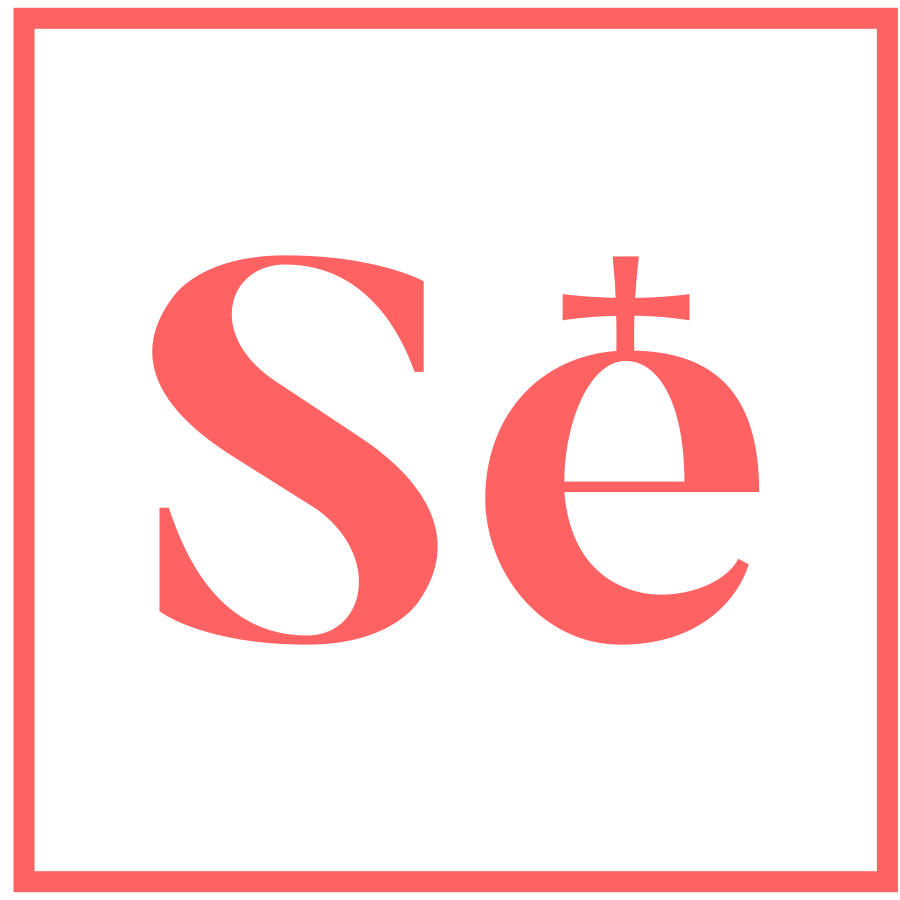Download.
Text
Contemplation to Attain the Love of God
Repetition
[230]
Note:
Before presenting this exercise it will be good to call attention to two points:
The first is that love ought to manifest itself in deeds rather than in words.
[231] The second is that love consists in a mutual sharing of goods, for example, the lover gives and shares with the beloved what he possesses, or something of that which he has or is able to give; and vice versa, the beloved shares with the lover. Hence, if one has knowledge, he shares it with the one who does not possess it; and so also if one has honors, or riches. Thus, one always gives to the other.
Usual Preparation Prayer. – This is the last time that we will make this prayer in the Exercises, asking, one last time, for the perfect ordering of my life.
[232] First Prelude: The composition of place: This is the representation of the place, which here is to behold myself standing in the presence of God our Lord and of His angels and saints, who intercede for me.
[233] Second Prelude: The petition: This is to ask for what I desire. Here it will be to ask for an intimate knowledge of the many blessings received, that filled with gratitude for all, I may in all things love and serve the Divine Majesty. – To be able to love and to serve the Divine majesty in everything means to have the disposition to serve God completely, knowing in every moment and in every moment perfectly fulfilling the Divine will, and loving Him wholeheartedly, purely with the goal of fulfilling my desire to serve Him and to please the Divine goodness out of love for Him, rather than out of fear of punishment, seeking God in all things, uniting myself to Him as frequently as possible. This means not just repeated devotions, but rather actively uniting myself to Him by trying to see Him and speak to Him as present in all things, and passively my keeping my soul in peace and tranquility, in order to receive what God wants to give me, whenever He wants to give me something.
For this repetition, we will follow the indications of Fr. Calveras in Ejercicios Intensivos.[1]
“The goal of this contemplation, after we have considered the week of the Lord’s Passion and Resurrection, is to unite our wills with Christ’s, until we can see Him like another me, through my intense participation in His sufferings and joys. Hence, to pertains to this contemplation:
- To complete the radical re-orientation of my self-love, leading to getting rid of all sense of property in what I am and what I have, meaning, I really do give everything back to God. I do this by:
- Consecrating, with the perfect surrender of my self, all of my interests to Him, in such a way that, because of my intense participation in Christ’s sufferings and happiness, as if they were my own, all opposition or rivalry between my own feelings and those of Christ will disappear.
- Unifying my interests with those of God, so that my own interests, etc., disappear, so that I can love God for Himself, and love myself inasmuch as I belong to Him.
- Likewise, I will establish a formal friendship with God, in order to living out my friendship from here on out with a complete surrender of self.
- With these things, I will be able to, as a sort of final disposition, love and serve the Divine majesty in everything.
[234] First Point
“This is to recall to mind the blessings of creation and redemption, and the special favors I have received. I will ponder with great affection how much God our Lord has done for me, and how much He has given me of what He possesses, and finally, how much, as far as He can, the same Lord desires to give Himself to me according to His divine decrees.”
Calveras, citing a document by Ignatius himself, explains it this way:
“Blessings of creation: everything natural that you are and have is His blessing to you, since He gave it to you and conserves your life and being, as well as all the parts and perfections of soul, body, and exterior goods. Likewise, the whole universe is His gift to you, as well as everything contained in it, corporal and spiritual, since He has set under our dominion not only everything that is contained under the heavens, but also all of His sublime heavenly court, in accord with the heavenly hierarchy.
Redemption: This too He gave us, when He gave Himself to us, becoming our brother in the flesh, at the price of our salvation on the Cross, and He maintains and accompanies us in the Eucharist.
Particular gifts: His gifts include the spiritual gifts of His grace, gifts He has given so liberally and so kindly, even while we were His enemies and against Him
How much God our Lord has done for me: His Divine Majesty wanted to provide me with so many expensive gifts, in a certain sense sacrificing His perfect happiness of His good in order to make me a participant in it, and taking upon Himself my miseries in order to free me from them. He wanted to be sold in order to ransom us, made infamous in order to glorify us, made poor in order to enrich us, suffering a death so inglorious and full of torment in order to give us a blessed and immortal life.
How much He has given me of what He has: everything that I have and that I am in the natural order and in the order of grace, and all that He has placed at my service, both bodily and spiritual, in the whole universe.
This same Lord wants to give Himself to me inasmuch as He can: in glory, since the great goods of His glory are His gifts to me, even though they do not benefit Him at all. He communicates to us the treasures of His happiness in order that, through an eminent participation in His divine perfection, we might become what He is by nature and essence. Even in this life, He wants to give me Himself, by giving me His continual delights and filling me with His most holy consolations.
“Then I will reflect upon myself, and consider, according to all reason and justice, what I ought to offer the Divine Majesty, that is, all I possess and myself with it. Thus, as one would do who is moved by great feeling, I will make this offering of myself:
“All reason and justice”: Christ warrants everything from us, because He raised us up, He redeemed us, and gave us everything. How could anyone refuse to give himself entirely to the one who gave Himself entirely for us, and who is perpetually giving Himself to us as well?
Take, Lord, and Receive
Take, Lord, and receive all my liberty, my memory, my understanding, and my entire will, all that I have and possess. Thou hast given all to me. To Thee, O Lord, I return it. All is Thine, dispose of it wholly according to Thy will. Give me Thy love and Thy grace, for this is sufficient for me.”
Following Ignatius, let us consider this prayer more closely: “Consider how complete and how perfect this oblation is. This isn’t merely an offering that we are making freely, like the sort of generosity we should’ve had when we began the Exercises. Nor it is the surrender that we made when we asked to be received under Christ’s standard at the beginning of the second week. Rather, this is a formal donation, a formal oblation, made out of justice for all the things that we have received.
Take and receive: Take or accept as an offering, and receive it as a gift, because according to justice I should, not simply offer, but rather give to the Infinite Goodness everything that I have, and myself along with them.
All my liberty, my memory, etc.: all of my liberty, that is, the free disposition and realization of all of my acts, in order not to use things according to my judgment and opinions, or to my desires and wishes, but rather to the desires and will of God. My memory, in order not to set my mind to things that are unimportant, vain, or illicit, but rather in God, or in things that are appropriate and more advantageous for the service of the Divine majesty. My understanding, in order to employ it in a similar way, and moreover to subject it to obedience and to the faith. My entire will, my desires and own likings, my aspirations and wants, in order to conform them entirely with the Divine Will and delight, the most perfect rule.
All that I have: my person, my very self; and possess: all that I have, all my things: a summary of the content of this oblation.
Dispose of it wholly according to Thy will: Make use of everything according to Your designs; give me the grace to know Your will, and to fulfill it perfectly.
Give me Thy love and Thy grace, for this is sufficient for me: Give me to know Your will, visit me with Your grace and eternal love, and that is enough.
[235] Second Point
“This is to reflect how God dwells in creatures: in the elements giving them existence, in the plants giving them life, in the animals conferring upon them sensation, in man bestowing understanding. So He dwells in me and gives me being, life, sensation, intelligence; and makes a temple of me, since I am created in the likeness and image of the Divine Majesty.
Then I will reflect upon myself again in the manner stated in the first point, or in some other way that may seem better.
The same should be observed with regard to each of the points given below.”
In this point, what are to be considered are the various ways in which God is present in the world as the universal agent cause, who “acquires” a new title with each new action, meaning, giving being, life, sensation, and intelligence.
God is present in all of these ways in me, working my meritorious acts. On the other hand, on my part, by knowing and loving God, God becomes present to me as an object known by my intellect and as an object loved by my will, such that my soul becomes an image of the Trinity, inasmuch as it imitates the procession of the Word and the Holy Spirit. This means to say that God, who dwells in me, making me a Temple, having made me an image and likeness of His divine majesty, includes God’s presence as a supernatural agent.
Calveras notes that there is a remarkable agreement between the doctrine of Saint Thomas Aquinas and what Ignatius says here, citing ST I, q. 93, a. 2, ad 9, where Aquinas explains that a likeness is a more general sort of image; the image resembles the thing in the details, whereas a likeness “may be considered in the light of a preamble to image, inasmuch as it is something more general than image.”
[236] Third Point
This is to consider how God works and labors for me in all creatures upon the face of the earth, that is, He conducts Himself as one who labors. Thus, in the heavens, the elements, the plants, the fruits, the cattle, etc., He gives being, conserves them, confers life and sensation, etc.
Then I will reflect on myself.”
Here, we see the same great variety of the way God acts in creatures as we saw in the point before, but here the difference is that these in some way influence in my life, and thus under another aspect, namely, how they work for my good. Hence God works and labors for me, thinking of the advantages that such creatures will have for me in my life at particular points in time and thus they cooperate with Him in making those plans come about.
In order to consider how much abundant and fruitful material there is in this contemplation, we can simply consider how many things had to come together, how many things God had to make happen, in order for me to eat the bread that I had this morning, from the point the seeds were sown in the field, until they were made into wheat. We can think of the working in the fields, the rains, the sun, the sprouting and growing of the seeds, their bearing fruit, kept safe from harm, then harvested, taken to the mill, then ground, brought to the bakery (or factory, whatever), and then cooked, made into bread, packaged, sold, etc. In all this long process, God knew that I would eat this bread, and so He disposed the process accordingly, thinking contentedly in the pleasure and joy it was to bring me.
Reflecting on ourselves, we can consider some points Ignatius brings us:
- If God works and labors for me, thinking of my good in all the things that in some way influence in my natural life, I should therefore work for God in all the particular things in my life, always with rectitude and purity of intention, always serving and thinking of God. If this is the only thought that concerns me, then everything I do will be what is at each moment the most pleasing to God.
- If God shows this much concern for my natural life, how much more will He have for my eternal salvation and for the perfection of my soul, governing everything, disposing all things, both general and specific to me, all for the greater good of my soul. If I embrace His will with a disposition of confidence in Divine Providence, disposed to follow Christ in all things, I will find peace of heart in all things.
[237] Fourth Point
“This is to consider all blessings and gifts as descending from above. Thus, my limited power comes from the supreme and infinite power above, and so, too, justice, goodness, mercy, etc., descend from above as the rays of light descend from the sun, and as the waters flow from their fountains, etc.
Then I will reflect on myself, as has been said.”
In this point, Ignatius proposes the highest reason for our love, which is based on our friendship with God, namely, that He Himself is the supreme perfection and infinite love in all orders, and that the perfections of creatures with their limitations are a participation of God’s infinite perfection, like rays of light are from the sun, and waters from their source. Here, we must insist on having the highest possible understanding of the divine perfections, starting from the limited little ones we find here on earth which, at the end of the Exercises, we can find in ourselves. Hence, as I examine these perfections, I can see Jesus Christ and His divinity acting in all of them.
Reflecting on ourselves, we can again follow what Ignatius says:
- Since all goods and gifts come from above, it means that all the good found in creatures should be attributed to God. Hence, we should explicitly praise God through them whenever we recognize good in others. This is to praise the painter of the work, the sculptor of the statue, and not the brush or the hammer.
- Likewise, God, who is perfect in Himself, is most worthy of all service, and hence I should serve and please the Divine Majesty in all things, not only for all the things and love that He has given me, but rather and also simply because of who He is.
- Likewise, when I consider God’s perfections and compare them with mine, I notice that mine practically disappear. Hence, I shouldn’t love my own perfections, since they are basically nothing, but rather I should set all my love in God, being content to see all the perfections in God, and thus my self-love will be entirely re-directed and centered on God.
- Since in all creatures there is a flash of the Divine goodness, I should love God through creatures, loving God in all things, taking advantage of their limited perfections in order to pass to God’s infinite ones, passing from the creeks and streams to the source, or the rays of sun to the sun itself.
- Again, since the goodness of creatures is a limited participation in God’s infinite goodness, I should love all things in God, rejoicing in their limited perfections, just like mine, in the same way that God delights in the perfections of the creatures that He has made, and asking that God’s glory be increased in them. If this really is my reason for loving creatures, then I will, in my benevolence, embrace all of my neighbors, seeking to do them good, and my use of creatures will be always and completely subjected to the designs of the Divine Will, for God’s greater glory and service.
Colloquy: Conclude with a colloquy and the Our Father.
[1] Text loosely translated from said text, 377-410.

Take, Lord,
and receive all my liberty, my memory, my understanding, and my entire will, all that I have and possess. Thou hast given all to me. To Thee, O Lord, I return it. All is Thine, dispose of it wholly according to Thy will. Give me Thy love and Thy grace, for this is sufficient for me.
(Spiritual Exercises #234. Louis Puhl SJ, Translation.)



